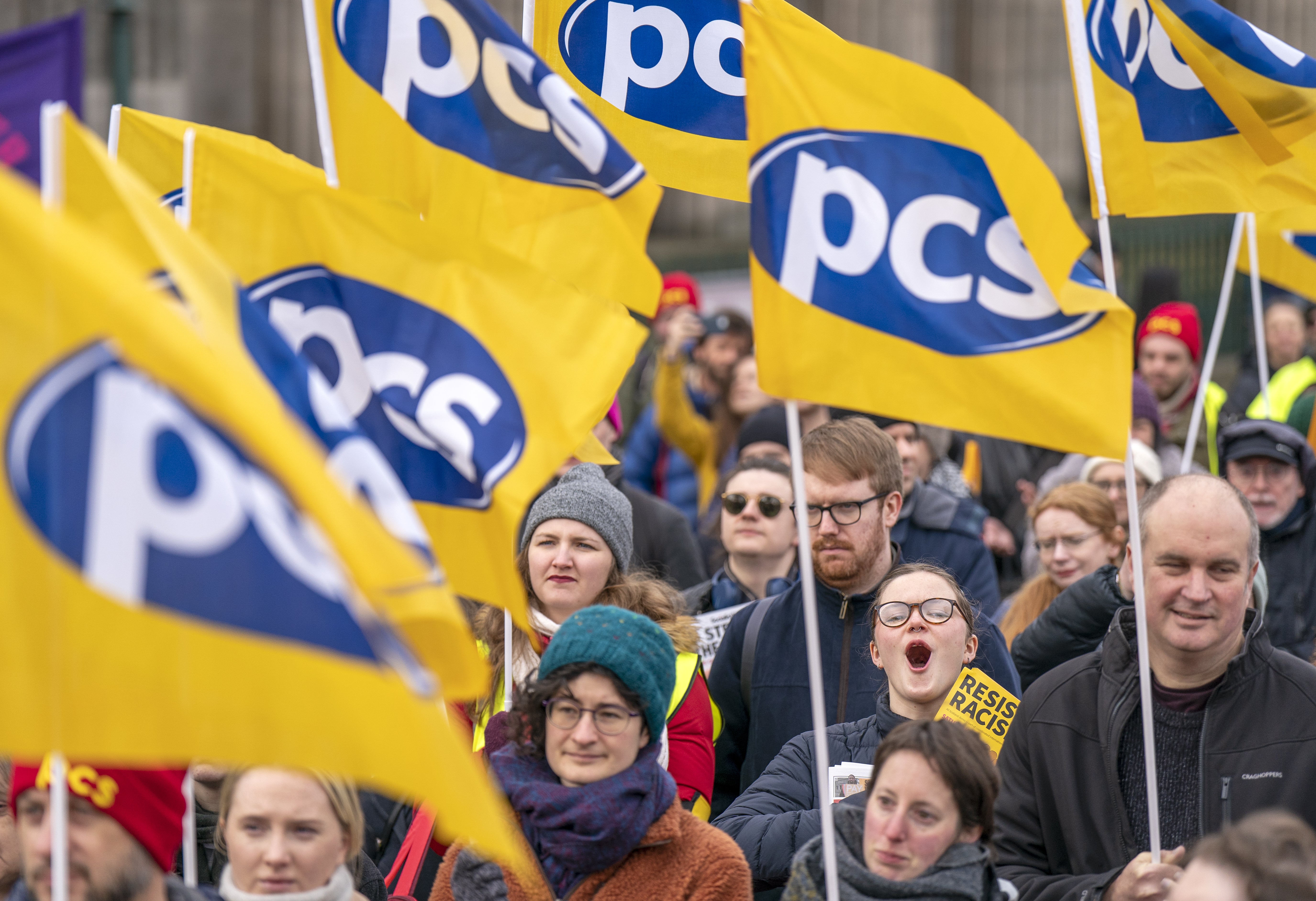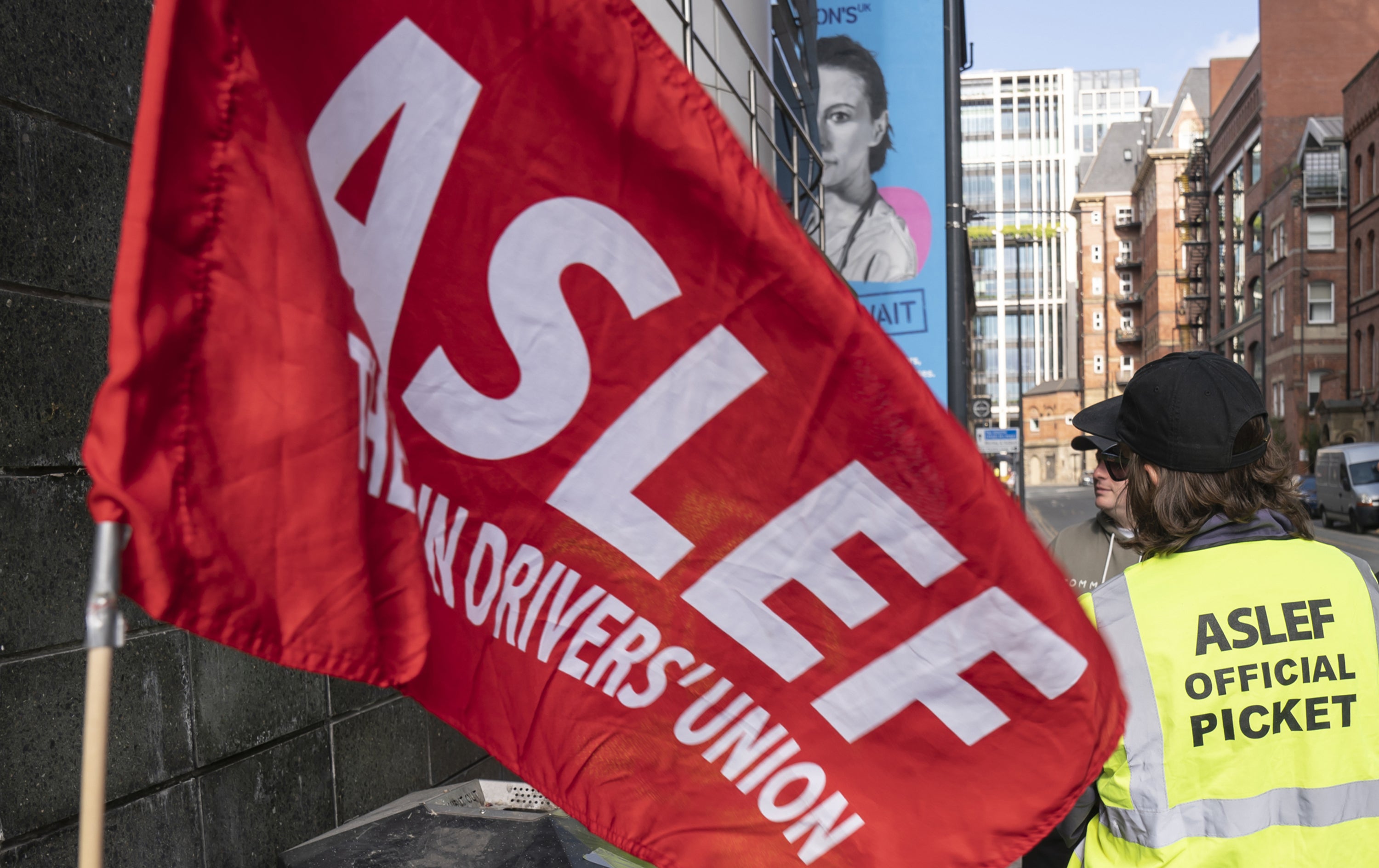Unions to vote for public sector ‘pay restoration’ as new wave of strikes looms
Unions told The Independent further industrial action could be on the horizon if the government does not meet their pay demands
Your support helps us to tell the story
From reproductive rights to climate change to Big Tech, The Independent is on the ground when the story is developing. Whether it's investigating the financials of Elon Musk's pro-Trump PAC or producing our latest documentary, 'The A Word', which shines a light on the American women fighting for reproductive rights, we know how important it is to parse out the facts from the messaging.
At such a critical moment in US history, we need reporters on the ground. Your donation allows us to keep sending journalists to speak to both sides of the story.
The Independent is trusted by Americans across the entire political spectrum. And unlike many other quality news outlets, we choose not to lock Americans out of our reporting and analysis with paywalls. We believe quality journalism should be available to everyone, paid for by those who can afford it.
Your support makes all the difference.Union delegates are set to call on the government to pursue a raft of pay restoration settlements for public sector workers.
In a bid to reverse over a decade of real-term wage reductions, Trades Union Congress (TUC) delegates representing nearly 5.5 million workers workers will decide on a call for above-inflation rises at a conference next month.
The move could set the stage for a potential clash between the new Labour government and its union supporters, following a series of pay agreements involving healthcare and rail workers.
Leader of the Fire Brigades Union Matt Wrack has suggested that next month’s TUC conference is likely to see delegates pushing for significant pay increases.
A motion from the Public and Commercial Services (PCS) union argues that public sector wages have decreased by an average of 1.5 per cent annually since 2011, and it calls for a pay restoration to be at the centre of the TUC’s negotiations with the new government.
A spokesperson told The Independent: “We have been in dispute with the government on pay for a number of years. The action we have taken has forced numerous concessions and we will take action again should we not secure further concessions at the bargaining table.

“However, we are hopeful that action will not be necessary and that we can resolve the issues at the negotiating table.”
Labour’s historical ties to the unions could be tested by these demands as the call for wage increases is at odds with ministers’ efforts to tighten control over the nation’s already strained finances.
According to economists, each one percent increase in the public sector pay bill could cost taxpayers around £2.5 billion. To fully restore public sector pay back to 2011 figures in real terms, wages would need to rise by 21 per cent.
However, the PCS has not revealed a specific number, emphasising instead the need for government investment to restore living standards.
The union said: “We think the government should invest in pay to put living standards where they should be. We are not going to put a figure on it.”
Last year, the TUC supported multiple motions advocating for pay rises, but these were largely disregarded by the Conservative government. With Labour now in power, unions see an opportunity to advance their demands.
The PCS told The Independent: “Our demands are complementary to the governments aim of regenerating and growing the economy. Our members will spend their money in the economy and that will contribute to the governments growth agenda.”

As unions ramp up their demands, public sector employees are also gearing up for potential strikes.
Junior doctors, who staged 11 strikes over 18 months, sought pay increases of up to 35 per cent to address years of below-inflation raises. The government recently offered a 22 per cent pay rise over two years, which the BMA has now recommended its members accept.
The rail sector is also at flashpoint, with train drivers planning a series of weekend strikes on the East Coast Main Line despite a recent 14 per cent pay offer. The Aslef union has warned the new strike action represents a “breakdown in industrial relations”.
Chancellor Rachel Reeves previously warned the government’s finances are under severe pressure and accused the previous government of leaving a projected £20 billion shortfall behind.
Departments have been ordered to prepare for spending cuts and tax increases are expected in the upcoming budget.
The Institue for Fiscal Studies has forecasted that Labour will need to find up to £7 billion to fund immediate post-election pay settlements.

Join our commenting forum
Join thought-provoking conversations, follow other Independent readers and see their replies
Comments